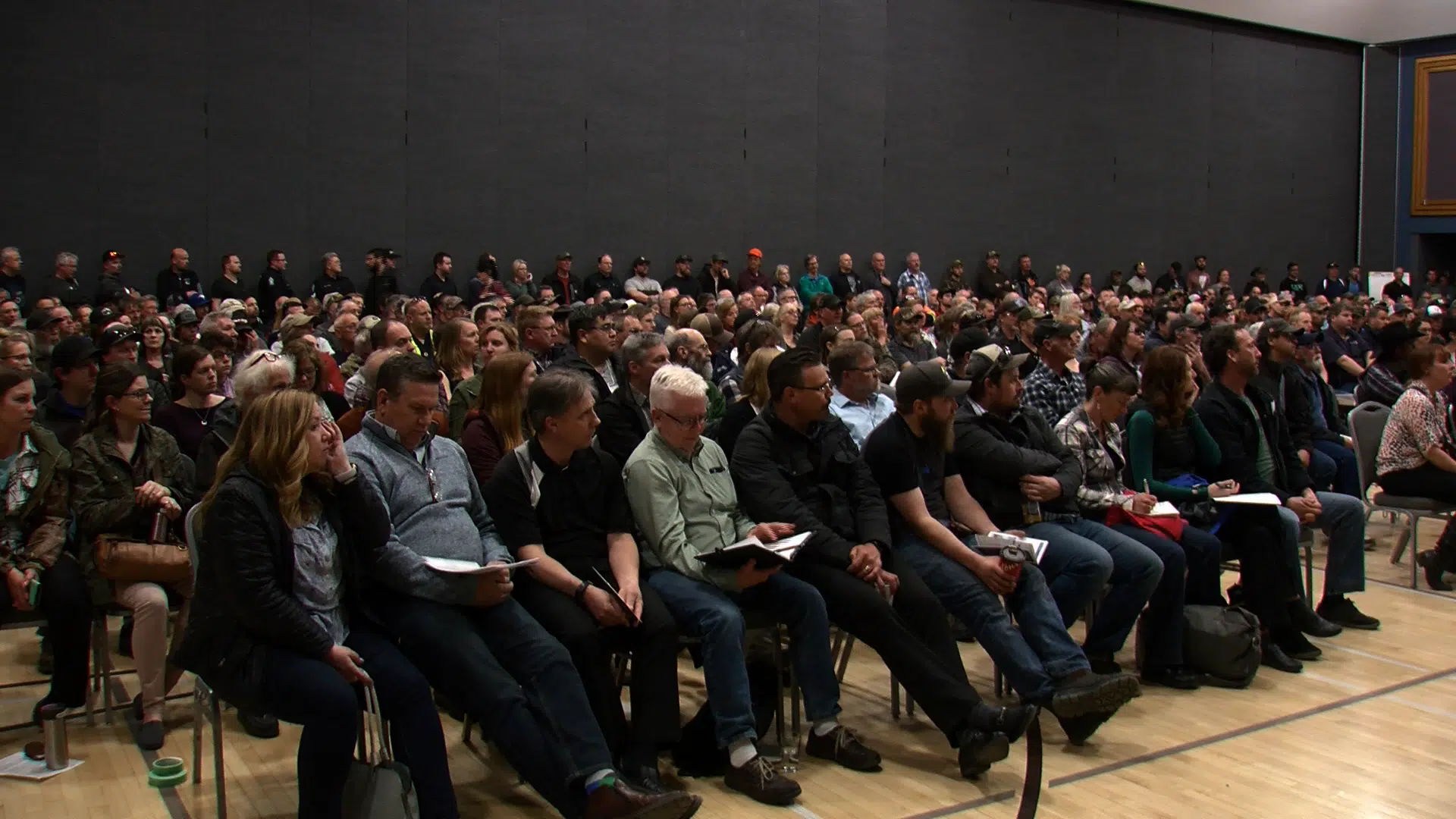
Hundreds attend caribou forum
PRINCE GEORGE— Over 500 people packed the auditorium at the Conference and Civic Centre to hear what the federal and provincial governments have planned to recover the Woodland caribou populations. The Province says there is a trio of causes for the decline: disturbances on the landscape, such as fires and harvesting, linear assets, like service roads and access to food. Herds have been declining in recent years. For example, the herd numbers in the Peace country have dropped to about 200 animals from about 800 in the early 2000’s while numbers have dropped from 1,500 to about 700 in the Northeast.
Two partnership agreements with the West Mobley First Nation and the Saulteau First Nation in the Peace Country were predominantly the discussion during last night’s presentations, although the entire length of the Rockies from north of Mackenzie to Cranbrook is covered under a Species At Risk Section 11 agreement with the federal government. The Partnership agreements lay out very specific land uses and propose moratoriums on resource operations.
“The moratoriums would apply once the agreements are signed,” explains David Muter, Executive Director for Species At Risk Recovery. “So we want to gather that feedback from folks here. We know that there’s a lot of concern. We appreciate coming and discussing that with us. The way it works, those moratoriums would apply once the agreements are finalized.”
Muter assures there are no restrictions to the backcountry access, which was a major source of concern from some in attendance. However, industry is sounding the alarm.
